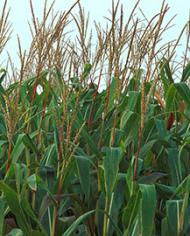A team from ARS and the University of Minnesota tested soil additives containing nitrogen-fixing microorganisms in a 3-year field study.
Search Articles
-
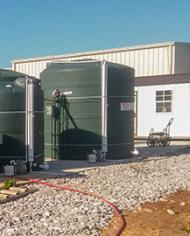
ARS scientists are sounding out a new way to improve biogas production and help the environment.
Apr 28, 2023 -
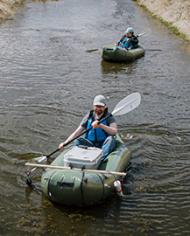
A novel approach for determining the effectiveness of conservation practices in reducing nitrate losses.
Mar 27, 2024 -
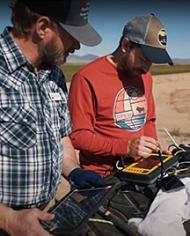
Researchers worked with the Quapaw tribe to create high-resolution digital maps of soil properties for their tribal lands.
Apr 26, 2024 -
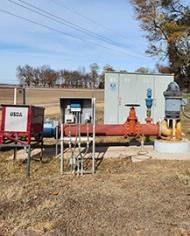
Pumping groundwater from local aquifers to irrigate crops has increased yields but is steadily reducing the supply of available water for future use.
Mar 27, 2024 -
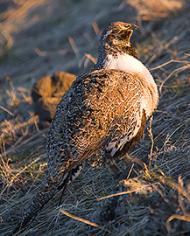
Researchers used the Lawson Aerator to evaluate the effectiveness of a mechanical treatment to renovate rangelands.
Mar 27, 2024 -
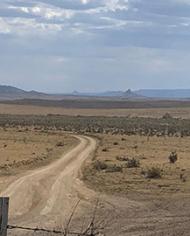
An ARS research team along with the Southwest Climate Hub in Las Cruces, NM, developed a resource called The Water Adaptation Techniques Atlas.
Mar 27, 2024 -
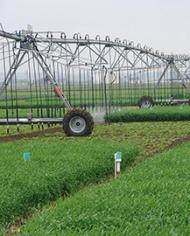
To support efficient water management, ARS researchers developed an open-source model, pyfao56, for precise crop water management.
Mar 27, 2024 -
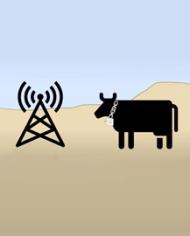
A team of researchers has combined satellite data with virtual fencing to turn ordinary livestock grazing into a powerful tool to reduce wildfire risk.
Mar 27, 2024 -
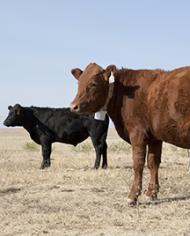
Scientists are investigating the effects of land use management practices on wildfires as part of USDA’s Long-Term Agroecosystem Research program.
Mar 25, 2021 -
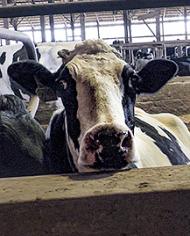
ARS scientists collaborated to sequence and assemble the genomes of the ticks that cause cattle fever and anaplasmosis.
Apr 17, 2023 -
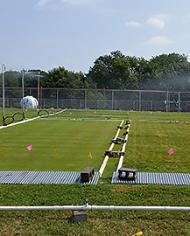
ARS researchers investigated whether vegetative filter strips could remove excess nitrogen from runoff.
Apr 05, 2023 -
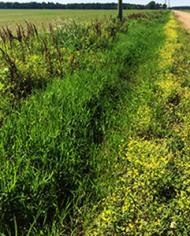
ARS researchers found that keeping plants in drainage ditches can benefit the aquatic ecosystem
May 02, 2022 -
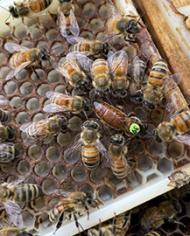
ARS researchers are studying genetics and breeding to make honey bees more resilient.
Apr 06, 2022 -
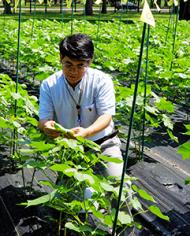
Scientists are producing new strains of cotton that offer both quality and abundance.
Mar 14, 2022 -
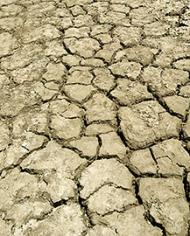
ARS researchers and the USDA Southwest Climate Hub developed a new set of tools aiming at helping farmers, ranchers, and other stakeholders plan for serious environmental challenges.
Mar 02, 2022 -
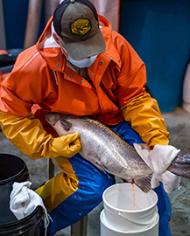
An improved genome reference sequence for the North American Atlantic salmon and the first DNA chip enables the use of genomic information in breeding strategies.
Feb 22, 2022 -

An improved genome reference sequence for the North American Atlantic salmon and the first DNA chip enables the use of genomic information in breeding strategies.
Feb 22, 2022 -
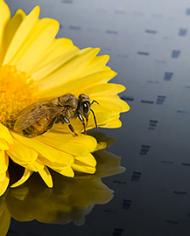
Researchers with the ARS Honey Bee Breeding, Genetics, and Physiology Research Unit have identified a region of the honey bee genome linked to reduced colony defensiveness.
Feb 11, 2022 -
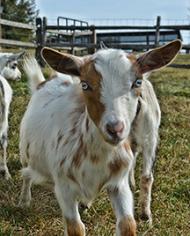
The USDA-USAID Livestock Improvement Project is an 8-year international program to enhance genetic gains made in local goat populations.
Mar 24, 2021 -
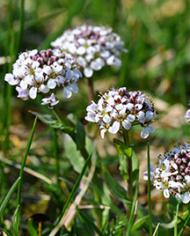
Researchers determined that winter camelina and pennycress are effective in reducing excess nitrogen and preventing its escape from farmland.
Mar 31, 2021 -
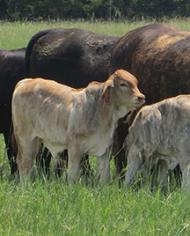
Promoting “manuresheds” to combat nutrient pollution while taking advantage of manure’s productive uses.
Mar 25, 2021 -
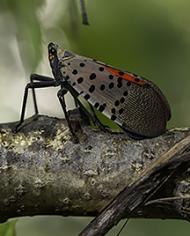
A team of ARS scientists in cooperation with Pacific Biosciences published the first genome of the invasive spotted lanternfly.
Mar 23, 2021 -
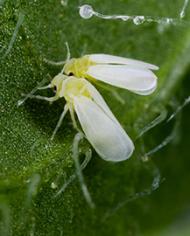
ARS scientists have developed novel RNA interference technology that interrupts the expression of critical whitefly genes.
Jul 27, 2020 -
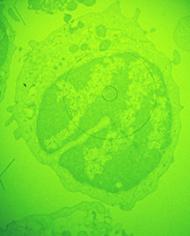
ARS scientists are using gene editing to assist in the development of a vaccine for
African swine fever.Jul 26, 2020 -
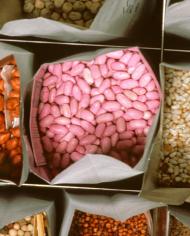
The National Plant Germplasm System--a collection of seeds, cuttings, bud wood, rootstocks, and other plant material--has had over 209,700 accessions shipped to 81 countries.
Mar 13, 2019 -
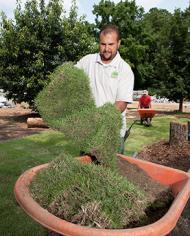
"Grass Roots", an exhibit developed by ARS scientists, educates the public on the importance, diversity, and benefits of turfgrass and their crop relatives.
Feb 16, 2017 -
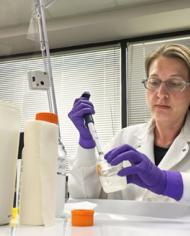
ARS researchers in New Orleans, LA, looked for an environmentally friendly, biobased alternative for cleaning cotton.
May 28, 2019 -
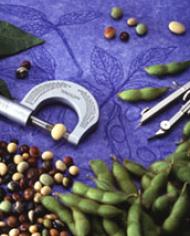
In an effort to reduce cooking time, ARS scientists discovered that genetic differences exist among beans that determine how long it takes the bean to cook.
May 25, 2018 -

ARS scientists have developed management strategies that reduce the buildup of dry plant material that fuels large wildfires.
May 07, 2018 -
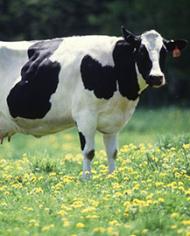
ARS researchers are at the forefront of cutting-edge genomics research that is providing breeders with the molecular tools they need to improve on key traits such as disease resistance.
Apr 16, 2018 -

ARS researchers are developing better ways to improve animal production by using more precise techniques and tools.
May 09, 2017



